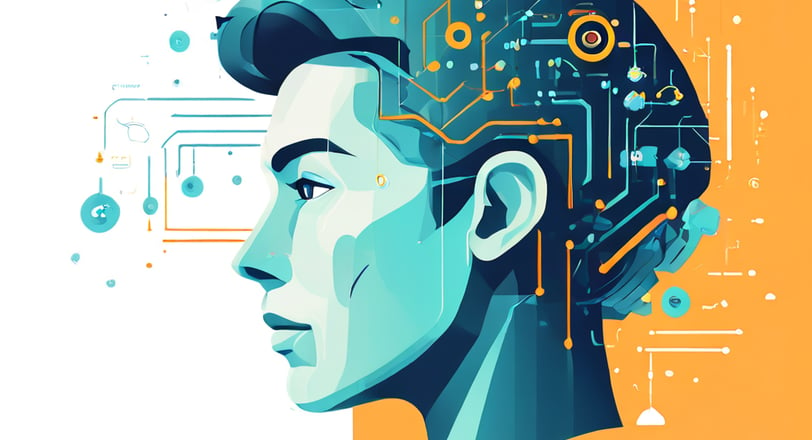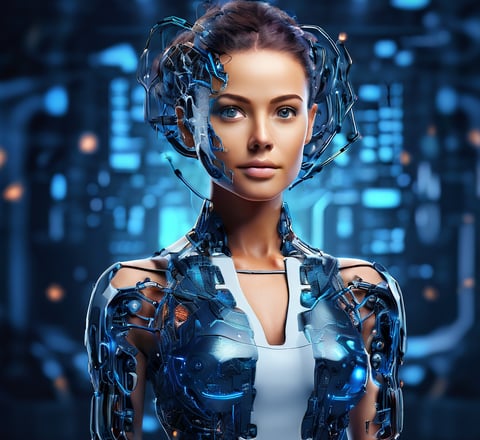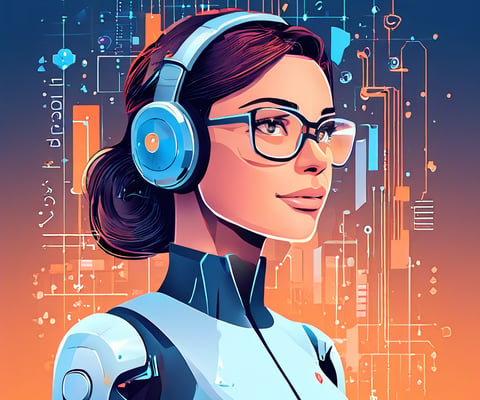The Future of AI Answer Generators: Trends to Watch in 2025
In the fast-paced world of technology, AI Answer Generators have emerged as powerful tools that transform how we access and process information. As we look ahead to 2025, several exciting trends promise to further revolutionize this field. This blog post explores five key trends in AI answer generation technology, including advancements in natural language processing, machine learning, personalization, multimodal capabilities, and integration with the Internet of Things (IoT).
TRENDSAI TECHNOLOGY
8/5/20245 min read


Advanced Natural Language Processing (NLP)
Understanding Context and Nuance
Natural Language Processing (NLP) is the backbone of AI Answer Generators, enabling them to understand and interpret human language. One of the most significant advancements we can expect by 2025 is the enhanced ability of AI to grasp context and nuance. Future NLP advancements will focus on improving context awareness, allowing AI to better understand the subtleties of human communication.
Handling Complex, Multi-Part Questions
Another exciting development in NLP is the ability to handle complex, multi-part questions. As AI models become more sophisticated, they will be able to break down intricate queries into manageable components, ensuring that each part is addressed accurately. This capability will be particularly beneficial in fields like education and healthcare, where users often have multifaceted questions that require detailed responses.
Advancements in Multilingual Capabilities
Language barriers have long been a challenge in global communication. However, advancements in multilingual NLP will enable AI Answer Generators to understand and respond to queries in multiple languages with equal proficiency. This will make AI tools more accessible to a broader audience, fostering greater inclusivity and understanding across different linguistic communities.
Enhanced Machine Learning Algorithms
More Sophisticated Training Models
Machine learning is at the heart of AI Answer Generators, allowing them to learn from data and improve over time. By 2025, we can expect to see more sophisticated training models that leverage vast datasets to enhance AI performance. These models will be capable of identifying patterns and correlations that were previously undetectable, resulting in more accurate and reliable answers.
Improved Ability to Learn from User Interactions
One of the most promising aspects of machine learning is its ability to learn from user interactions. Future AI Answer Generators will be equipped with advanced algorithms that can analyze user behavior and feedback to refine their responses continually. This means that the more users interact with the AI, the better it will become at providing relevant and helpful answers.
Integration of Deep Learning Techniques
Deep learning, a subset of machine learning, involves training neural networks to recognize patterns and make decisions. By integrating deep learning techniques, AI Answer Generators will be able to process and analyze complex data more effectively. This will enable them to provide more nuanced and accurate responses, particularly in scenarios that require a deep understanding of context and content.


Increased Personalization
Tailoring Responses Based on User History and Preferences
Personalization is becoming increasingly important in the digital age, and AI Answer Generators are no exception. By 2025, we can expect AI tools to offer highly personalized responses based on user history and preferences. This means that the AI will be able to remember past interactions and tailor its answers to suit individual needs.For example, if a user frequently asks about specific topics, the AI can prioritize those subjects in its responses. This level of personalization will enhance user satisfaction and make interactions with AI tools more engaging and relevant.
Adaptive Learning to Improve Relevance Over Time
Adaptive learning is another critical aspect of personalization. Future AI Answer Generators will be able to adjust their responses based on continuous learning from user interactions. This means that the AI will become more attuned to individual preferences and needs, providing increasingly relevant and accurate answers over time.
Integration with Personal Data Sources (with Privacy Considerations)
To achieve a high level of personalization, AI Answer Generators will need access to personal data sources. However, this raises important privacy considerations. By 2025, we can expect AI developers to implement robust privacy measures to ensure that user data is protected. This will involve using secure data storage and encryption methods, as well as providing users with control over their data and how it is used.
Multimodal AI Answer Generators
Incorporation of Image and Voice Recognition
The future of AI Answer Generators is not limited to text-based interactions. By 2025, we can expect to see the incorporation of image and voice recognition capabilities, creating multimodal AI systems. These advancements will enable AI tools to understand and respond to queries that involve visual or auditory information.For example, a user could upload an image and ask the AI to identify objects within it or provide information about the scene. Similarly, voice recognition will allow users to interact with AI tools using spoken language, making the experience more natural and intuitive.
Ability to Generate Responses in Various Formats (Text, Audio, Visual)
Multimodal AI Answer Generators will also be capable of generating responses in various formats, including text, audio, and visual. This flexibility will enhance the user experience by providing information in the most suitable format for the context.For instance, in an educational setting, the AI could provide a visual explanation of a complex concept, complete with diagrams and animations. In customer support, the AI could offer step-by-step audio instructions to resolve an issue. This versatility will make AI Answer Generators more effective and user-friendly.
Integration with Augmented Reality (AR) and Virtual Reality (VR)
The integration of AI Answer Generators with augmented reality (AR) and virtual reality (VR) is another exciting trend to watch. By 2025, we can expect AI tools to provide immersive, interactive experiences that enhance learning and problem-solving.For example, in a medical training scenario, an AI-powered AR system could guide students through complex procedures, providing real-time feedback and instructions. In a retail setting, a VR-enabled AI Answer Generator could help customers visualize products in a virtual environment, offering personalized recommendations based on their preferences.


Integration with Internet of Things (IoT)
AI Answer Generators Accessing Real-Time Data from IoT Devices
The Internet of Things (IoT) is rapidly expanding, with billions of connected devices generating vast amounts of data. By 2025, AI Answer Generators will be able to access and analyze real-time data from IoT devices, providing more accurate and contextually relevant responses. For example, in a smart home environment, an AI Answer Generator could access data from various sensors and devices to provide personalized recommendations for energy usage, security, and comfort.
Providing Context-Aware Responses Based on Environmental Factors
The integration of AI Answer Generators with IoT will also enable context-aware responses based on environmental factors. This means that the AI will be able to consider the current conditions and context when generating answers, making the information more relevant and actionable. For instance, a smart thermostat equipped with an AI Answer Generator could provide recommendations for optimal temperature settings based on real-time weather data and user preferences.
Conclusion
The future of AI Answer Generators is incredibly promising, with significant advancements expected by 2025. Enhanced natural language processing, sophisticated machine learning algorithms, increased personalization, multimodal capabilities, and integration with the Internet of Things are just a few of the trends that will shape the next generation of AI tools.These advancements will not only improve the accuracy and relevance of AI-generated answers but also make interactions with AI tools more engaging, intuitive, and personalized. As we continue to push the boundaries of AI technology, the potential applications and benefits of AI Answer Generators will only grow, transforming how we access and process information in our daily lives.By staying informed about these trends and embracing the latest developments, businesses and individuals can harness the full potential of AI Answer Generators to enhance efficiency, productivity, and overall user experience. The future is bright for AI Answer Generators, and the possibilities are truly limitless.
If you want to learn How to Use AI Answer Generators, check out our Complete Guide for Beginners!
AI Innovations & News
Explore how AI innovations can revolutionize your business.
Ai Technology
Join The Community
© 2024. All rights reserved.
